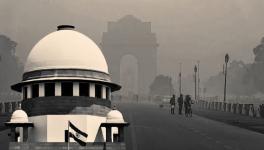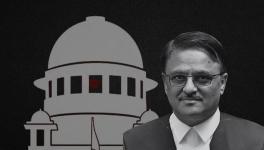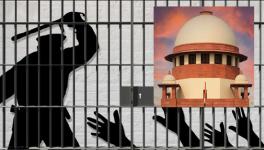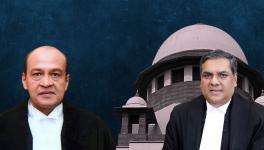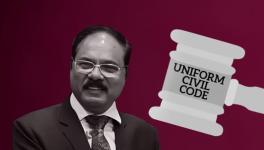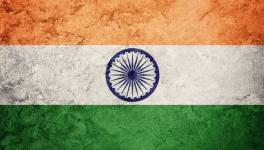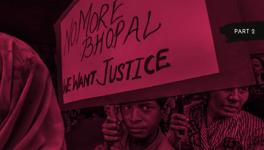Misinformation and Bigotry: Exposing the Misleading Arguments of the 21 Retired Judges Opposing Same-Sex Marriage in India
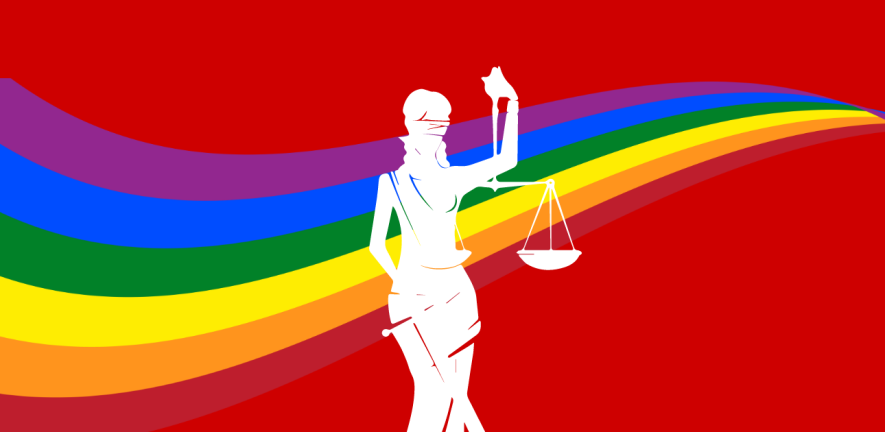
IN 2018, the Supreme Court of India issued a landmark verdict in Navtej Singh Johar & Ors. versus Union of India thr. Secretary Ministry of Law and Justice, overturning its previous verdict in Suresh Kumar Koushal & Anr. versus Naz Foundation & Ors. (2013). The 2013 verdict upheld the constitutionality of Section 377 (unnatural offences) of the Indian Penal Code, a colonial-era law that banned consensual sexual relationships between homosexuals.
The court’s reasoning in Navtej Singh Johar was that such a ban was not only unconstitutional, but also violated the fundamental and constitutional rights of the LGBTQ+ community. The judgment stated, “The LGBT community possess the same human, fundamental and constitutional rights as other citizens do since these rights inhere in individuals as natural and human rights.” The court’s decision was widely lauded for its progressive stance, not only striking down the homosexuality ban but also acknowledging the social, cultural and economic ostracisation faced by the LGBTQ+ community due to society’s prejudice and bigoted attitude towards them.
Five years later, a new issue concerning LGBTQ+ has come to the forefront of the Supreme Court’s attention, the legality of same-sex marriage and whether denying the right to marry someone of the same sex under the Hindu Marriage Act, the Foreign Marriage Act, the Special Marriage Act, and other marriage laws violates Articles 14 (equality before law), 15 (prohibition of discrimination on grounds of religion, race, caste, sex or place of birth), 19 (protection of certain rights regarding freedom of speech, etc.), and 21 (protection of life and personal liberty) of the Constitution. A five-judge Constitution bench will begin hearing the case on April 18, and the proceedings will be live-streamed.
Also read: Case for recognition of same sex marriage under Special Marriage Act
Opposition to same-sex marriage: The concerns of 21 retired judges
In addition to the Union government, represented by Solicitor General of India Tushar Mehta, opposition to the recognition of same-sex marriage has also come from 21 retired high court judges.
Last week, 21 retired high court judges expressed their concerns over the potential legalisation of same-sex marriage, stating that it would have a “devastating impact on children, family, and society”.
In an open letter dated March 24, these judges expressed their concerns over the potential legalisation of same-sex marriage, stating that it would have a “devastating impact on children, family and society“. They believe that marriage in India is a socio-religious sacramental union between two families and serves a vital purpose beyond physical intimacy. They claim that legalising same-sex marriage could increase the number of HIV-AIDS (acquired immunodeficiency syndrome caused by the human immunodeficiency virus) cases, negatively affect the psychological and emotional development of children raised by same-sex couples, and weaken the gene pool, among other issues.
The judges also suggest that the issue should be debated in the Parliament and state legislatures to ensure that the law reflects the wishes of society and not just the desires of what they vaguely call “vested interest groups”, without specifying any information about these groups.
While these opinions reflect the concerns of only a few retired judges, their assertions are tragically laced with misinformation, falsehoods and negative stereotypes about the LGBTQ+ community that prevail in the larger public discourse. The Supreme Court, while ruling in Navtej Singh Johar, cautioned the public against holding these kinds of bigoted stereotypes about the LGBTQ+ community when discussing the constitutionality of Section 377 of the IPC.
Also read: Can the Hindu Marriage Act be interpreted to allow same-sex marriages?
Same-sex marriage is not a ‘western concept’
The assertion that same-sex marriage is a ‘western’ concept is patently false. Academics like Ruth Vanita and Saleem Kidwai, editors of Same-Sex Love in India: Readings from Literature and History (2000), and Madhavi Menon, author of Infinite Variety: A History of Desire in India (2018), have presented extensive evidence of same-sex intimacies and desires not only existing in ancient India, but also being celebrated and accepted.
It was the West that imported homophobia into India during colonisation, as evidenced by the introduction of Section 377 into our statute books by the British in 1861. The 21 retired judges who claim to be protecting India’s traditions are actually echoing the voice of our former colonisers, who viewed homosexuality as a vice and emphasised the importance of heterosexual families for procreation.
Indian culture and traditions are not static, and neither is the Constitution. From the slow but steady acceptance of LGBTQ+ people, characters and stories in mainstream media, Bollywood films, television shows and novels, it is clear that the inclusion of LGBTQI+ people would not harm Indian society— rather, it would strengthen our social fabric and make us a more vibrant and inclusive society.
Also read: Why Same-Sex Marriages Must be Judged at the Constitutional Altar
False claims about HIV infection and children raised by same-sex parents
The retired judges also selectively cite Volume 32 of the United States’ Centre for Disease Control and Prevention’s HIV Report of 2019, which accurately states that gay men are at a higher risk of HIV infection, but nowhere does the report state that legalising same-sex marriage would lead to an increase in such infections— this argument is entirely fictitious and has been concocted by the retired judges.
The very next line in the report (on page 19) identifies “stigma, homophobia, and discrimination” as key causes for the gay community being susceptible to HIV and other physical and mental illnesses. Legalising same-sex marriage can actually promote safer sex practices by allowing same-sex couples to access spousal health insurance and benefits. It can also increase public awareness about LGBTQI+ people, especially in healthcare settings, leading to increased support for HIV prevention efforts and better healthcare access for the community.
Denying gay couples the right to marry is not only unconstitutional but also antithetical to constitutional morality. It violates the provisions of the Constitution because it excludes an entire class of people from a fundamental right solely based on their sexual orientation.
As for the impact of same-sex marriage on children, the retired judges falsely state that “there are studies to state that legalising homosexual marriage will have negative consequences over the children adopted by such couples“, without citing a single study. On the contrary, multiple peer-reviewed studies in esteemed journals with representative sample sizes have found no evidence to support this claim. Scholars like American researcher, author, and professor Gregory Herek (1991), American clinical and forensic psychologist Joanna Rohrbaugh (1992), American psychologist Charlotte J. Patterson and American academic Richard E. Redding (1996), and American lawyer Melody Torbati (1997) have all concluded that study after study shows that children raised by same-sex parents are not disadvantaged in any important way compared to children raised by heterosexual parents.
Also read: A Spectrum of Pride: Recognising Same-Sex Marriage in India
Other arguments with no scientific basis
Other arguments, such as the claim that legalising same-sex marriage would weaken the human gene pool, decrease population numbers, or undermine herd immunity, have no scientific basis and are unsubstantiated. They are examples of non sequitur arguments where no logical connection can be drawn between the premises and the conclusion.
It is a shame that a group of people who once took an oath to “bear true faith and allegiance to the Constitution of India” and to “perform the duties of their office without fear or favour, affection or ill-will” are doing the exact opposite: resorting to unscientific, bigoted, and discriminatory arguments to attack the rights and freedoms of the gay community.
Also read: Same-sex marriage in India: why are Indian courts taking so long?
A call for inclusivity and acceptance
The striking down of Section 377 in 2018 by the Supreme Court was a milestone moment for the LGBTQ+ community, and a clarion call for greater acceptance and inclusion in the mainstream. In her concurring opinion in Navtej Singh Johar, Justice Indu Malhotra wrote: “A person’s sexual orientation is intrinsic to their being. It is connected with their individuality, and identity. A classification which discriminates between persons based on their innate nature, would be violative of their fundamental rights, and cannot withstand the test of constitutional morality.”
It is evident that denying gay couples the right to marry is not only unconstitutional but also antithetical to constitutional morality. It violates the provisions of the Constitution because it excludes an entire class of people from a fundamental right solely based on their sexual orientation. Furthermore, it violates constitutional morality because the Constitution must be interpreted in a way that promotes justice, liberty, equality and fraternity. Denying same-sex couples the right to marry goes against these fundamental values and principles of the Constitution.
The opposition to same-sex marriage by the 21 retired judges is based on misguided and discriminatory beliefs that have no factual basis. Their arguments reflect a deep-seated prejudice against the LGBTQI+ community and ignore the overwhelming evidence that same-sex marriage has no negative impact on society or children raised by same-sex couples. It is imperative that we reject their misinformation and instead support the constitutional rights of all individuals, regardless of their sexual orientation or gender identity.
The upcoming hearing by the Supreme Court provides an opportunity for us to reaffirm our commitment to inclusivity and diversity, and to ensure that our laws reflect the values of a modern and progressive India.
Get the latest reports & analysis with people's perspective on Protests, movements & deep analytical videos, discussions of the current affairs in your Telegram app. Subscribe to NewsClick's Telegram channel & get Real-Time updates on stories, as they get published on our website.










